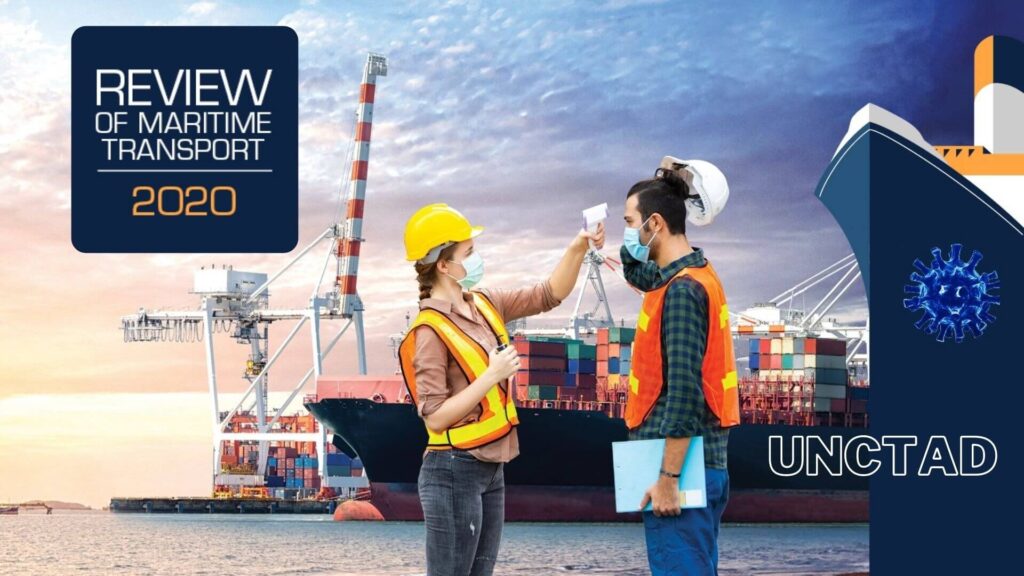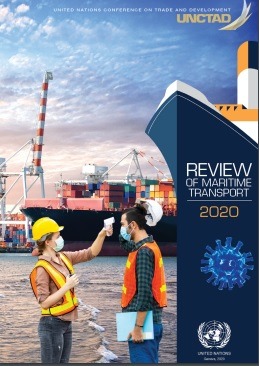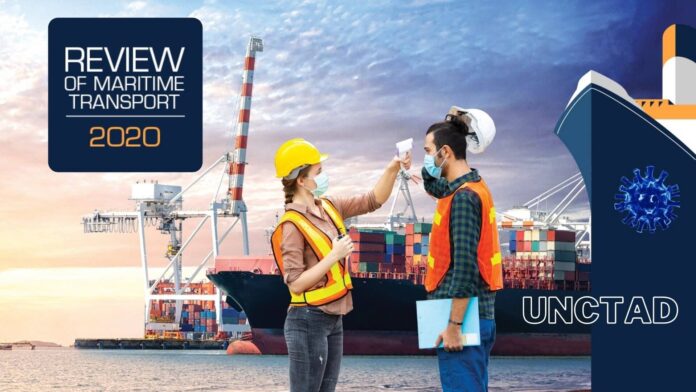
(www.MaritimeCyprus.com) The Review of Maritime Transport is a recurrent publication prepared by the UNCTAD secretariat since 1968 with the aim of fostering the transparency of maritime markets and analysing relevant developments. This edition of the Review covers data and events from January 2019 until June 2020.
Growth in international maritime trade stalled in 2019, reaching its lowest level since the global financial crisis of 2008–2009. Lingering trade tensions and high policy uncertainty undermined growth in global economic output and merchandise trade and by extension, maritime trade.
Maritime trade volumes expanded by 0.5 percent, down from 2.8 percent in 2018 and reached a total of 11.08 billion tons in 2019.
Growth in world gross domestic product slowed to 2.5 percent, down from 3.1 percent in 2018 and 1.1 percentage point below the historical average over the 2001–2008 period. In tandem, global merchandise trade contracted by 0.5 percent, as manufacturing activity came under pressure and the negative impact of trade tensions between the two largest world economies took a toll on investment and trade.
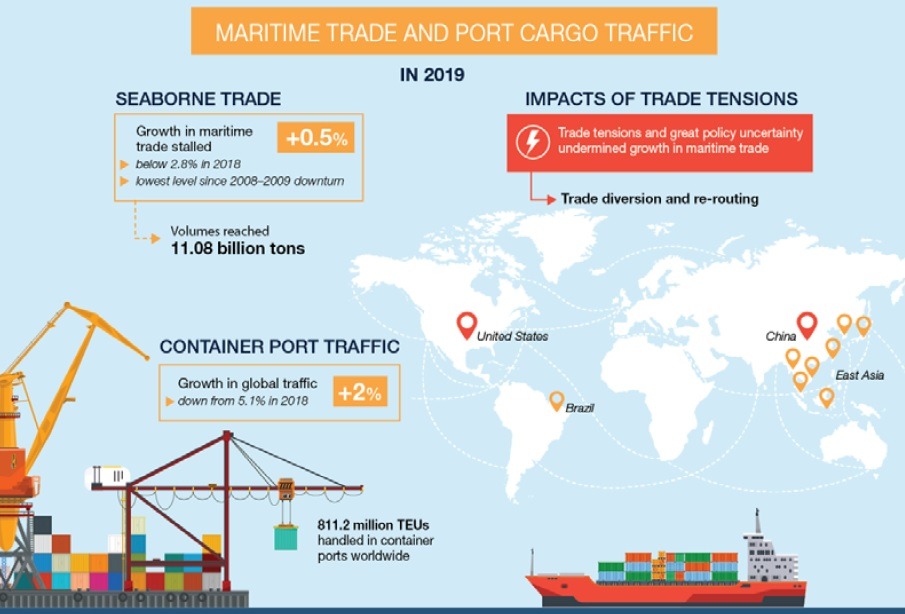
Against the backdrop of a weaker 2019, the short-term prospects of maritime transport and trade darkened in early 2020. While initial expectations were that 2020 would bring moderate improvements in the economy and trade, the unprecedented global health and
economic crisis triggered by the COVID-19 pandemic severely affected the outlook. The fallout on maritime transport and trade was dramatic, with all economic indicators pointing downward. Taking into account the prevailing and persistent uncertainty, UNCTAD estimates that the volume of international maritime trade will fall by 4.1 percent in 2020.
Predicting the timing and scale of the recovery is also challenging, as many factors can significantly influence the outlook. Bearing this in mind, UNCTAD projections indicate that maritime trade will recover in 2021 and expand by 4.8 percent.
As the debate on the recovery continues to evolve, it is becoming clear that disruptions caused by the COVID-19 pandemic will have a lasting impact on shipping and trade. These disruptions may trigger deep shifts in the overall operating landscape, together with a heightened sustainability and resilience-building imperative. Potential shifts range from changes in globalization patterns to alterations in supply-chain design, just-in-time production models, technology uptake and consumer spending habits. Depending on how these patterns unfold and interact, the implications for maritime transport can be transformational.
Further, risk assessment and management, as well as resilience-building to future-proof supply chains and maritime transport, are likely to feature more prominently on policy and business agendas. While maritime transport could emerge as a catalyst supporting some of these trends, it will also need to brace itself for change and adapt and ensure that it is also well prepared to enter the post-COVID-19 pandemic world.
The Review of Maritime Transport 2020 is structured around five substantive chapters.
- Chapter 1 considers the demand for maritime transport services.
- Chapter 2 considers the factors that shape maritime transport infrastructure and services supply, including ship-carrying capacity, ports and related maritime businesses.
- Chapter 3 assesses the sector’s performance using a set of indicators on port calls, port-waiting times, connectivity and the environmental sustainability of ships.
- Chapter 4 provides an overview of selected contributions received from various stakeholders, including government and industry, sharing experiences and lessons learned in connection with the pandemic.
- Chapter 5, the final chapter, presents key legal and regulatory developments, as well as trends in technology and innovation affecting maritime transport and trade.
Click below to download the full UNCTADÂ report:
Interesting infographic from the report.
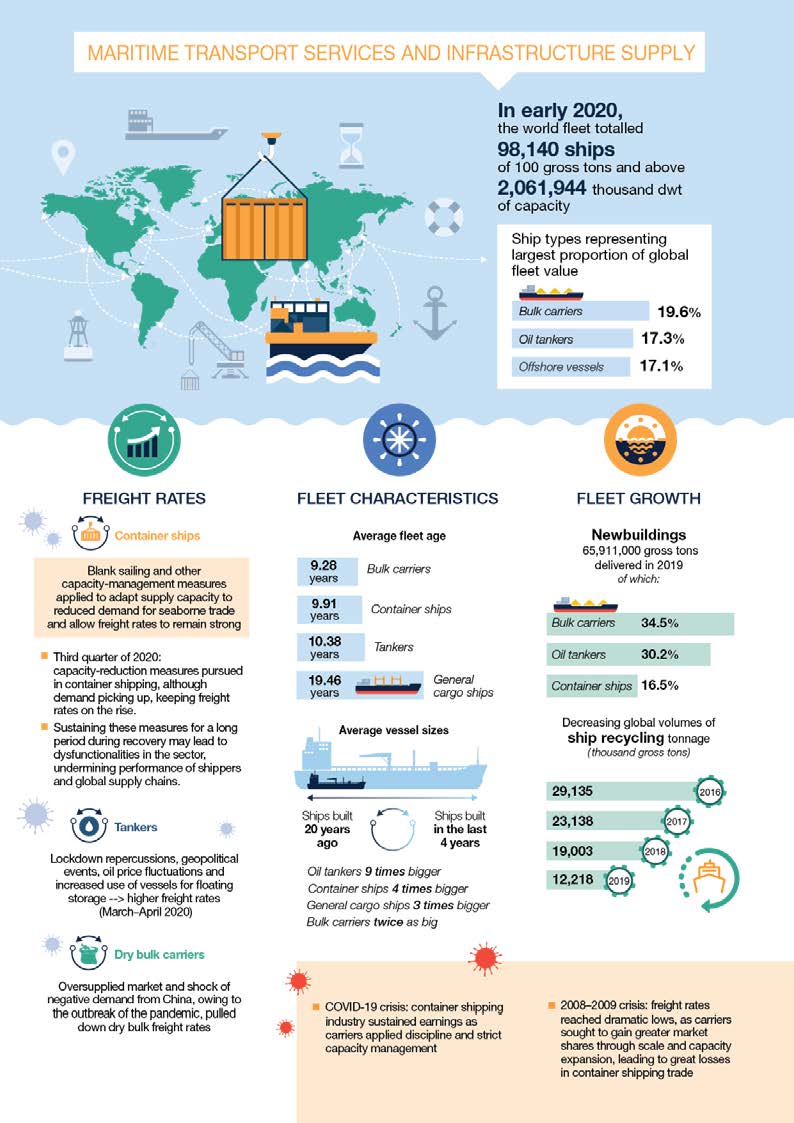
Source:Â United Nations Conference on Trade and Development (UNCTAD)

https://youtu.be/LiTLvh2TNXM





